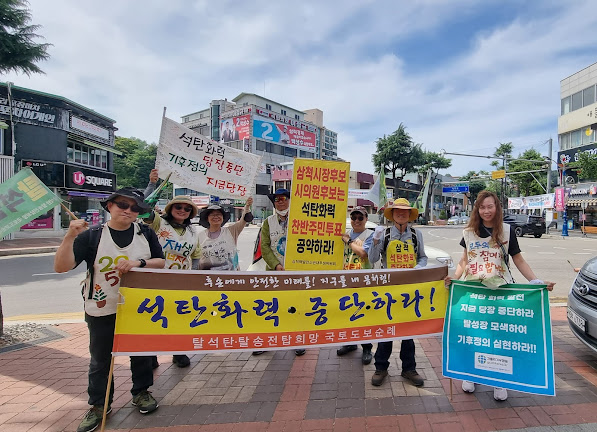By Hyein Anna Noh, CLM in Korea
“God always forgives. We humans sometimes forgive. The earth never forgives. There can be no future if we destroy the very environment that sustains us” (Pope Francis, Our Mother Earth, p36).
These local people are pickers, who forage for recyclables, and this is their main source of livelihood. When my colleague told me they view this trash as a gift from God to sustain their life, I felt a deep connection to them and hope to be able to better their lives.
All around the world, climate change is intensifying droughts, floods,
typhoons, heat waves, and
severe cold, all of which first harms our world’s
poorest people and “destroys ecosystems. Sooner or later, this will negatively
impact food production, leading to wars over food security. Climate wars will
not only be a crisis for all of humankind, but for all of creation. Since “everything
is connected” (Laudato Si, 91), we can understand that nothing in this world is
unrelated to us. My temporary comfort today could cause another person on the
other side of the world to become a climate refugee - or send delicate
biodiversity into crisis. I don’t have deep or extensive knowledge like professional
climate scientists, but my heart aches as I hear the “cries of the earth, cries
of the poor” (Laudato Si, 49) day and night. I’m still at a loss when I hear of
the seeming impossibility of achieving climate-neutrality by 2050 and the
IPCC’s (UN Inter-governmental Panel on Climate Crisis) report that we’ll reach an
average global temperature rise of 1.5 degrees Celsius even faster than predicted.
However small, the act of carrying my picket sign to climate protests at Gwanghwamun changed my life. Now, I grow plants, ride a bike, use less plastic, and sort my waste more carefully. For several months, I cut high-carbon meats out of my diet until recently I began a vegetarian diet. As the action team leader for GCCM KOREA2, I’m inviting more people to get involved in the climate movement, not only through personal practice, but also by standing in solidarity and steadfast support of those raising a united voice to overcome this crisis. If you are wondering what you can do for our planet right now, let me encourage you to start taking action where you are.
As I mentioned at the start, I thought missionary life meant living in poverty among the poor, witnessing God in daily life. However, it is also important for missionaries to pay attention to the demands and needs of our age and generation. I confess to having overlooked this for a long time and reflect on how, even if unconsciously, my consumption is often based on convenience and efficiency. In my ignorance, God reminded me that not only humans, but also everything that exists on earth, our common home, exists in God’s created order. That reminder brought me to my ecological conversion. So, whenever I am exhausted and the road ahead seems hard, I would like to proceed silently in gratitude to God who waited for me over the last years. “The human person grows more, matures more and is sanctified more to the extent that he or she enters into relationships, going out from themselves to live in communion with God, with others and with all creatures” (Laudato Si, 240).








No comments:
Post a Comment